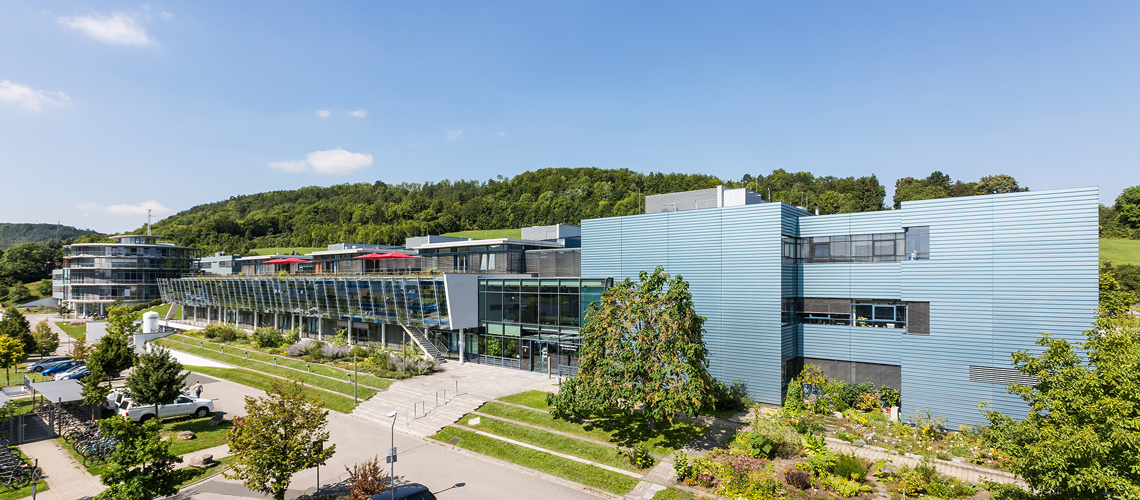
Job Code: IMPRS_2023_eJob Offer from July 14, 2023
The Max Planck Institute for Solar System Research (MPS) in Göttingen conducts fundamental research in the field of solar system physics. With its approximately 300 staff members, it is one of the leading institutes in the field of solar physics and planetary research. In particular, the institute is involved in numerous international space missions.
The International Max Planck Research School for Solar System Science at the University of Göttingen (“Solar System School”) offers a research-oriented doctoral programme in Solar system science. In the context of this IMPRS, the MPS offers PhD projects in three main areas: ”Sun and Heliosphere”, ”Solar and Stellar Interiors”, and ”Planetary Science”. Solar System School students collaborate with leading scientists in these fields and graduates are awarded a doctoral degree from the University of Göttingen or the TU Braunschweig.
The institute invites applications for PhD Positions in Solar System Science
The Solar System School is open to students from all countries and offers an international three-year PhD program in an exceptional research environment with state-of-the-art facilities on the Göttingen Campus. Successful applicants (m/f/d9 will be offered a three-year doctoral support contract with remuneration dependent on TVöD (65% E13) according to the German public salary scale, as well as postdoc wrap-up funding.
The language of the structured graduate program is English, with complimentary German language courses offered (optional). The program includes an inspiring curriculum of scientific lectures and seminars as well as advanced training workshops and provides relocation costs and travel funds to attend international conferences.
Applicants to the Solar System School should have a keen interest in Solar system science and a record of academic excellence. They must have, or must be about to obtain, an M.Sc. degree or equivalent in physics, chemistry, geosciences or a related field, including a written Masters thesis, and must document a good command of the English language.
Review of applications for a starting date of September 2024 will begin on 1 October 2023, but other starting times are also negotiable. The positions are awarded on a competitive basis.
How to apply
Applicants must submit the following documents through the online application portal between 1 August and 1 October 2023:
- an application form to be filled online, including two short texts describing the applicant’s scientific interests and their motivation to apply for PhD projects in the Solar System School, along with the applicant’s choice of up to three PhD projects;
- a curriculum vitae in pdf format;
- degree certificates and full transcripts of all academic records: i.e. scanned copies of B.Sc. and M.Sc. degree certificates (or equivalent), and lists of all courses with credits and grades issued by the respective school or university, with English or German translations;
- certificate to prove proficiency in the English language, for candidates whose most recent academic education has not been in English or German for at least two years (e.g. transcript of TOEFL / IELTS scores or equivalent);
- contact details for two or three academic referees who have been contacted by the applicant and who have agreed to write a letter of recommendation on behalf of the applicant. The referees will subsequently be contacted by the School and will be asked to submit their letters through the online portal no later than 10 October 2023.
It is highly recommended to also submit
- GRE Physics or GRE Chemistry test scores or equivalent for candidates who have obtained their Master’s degree at a university outside of the European ECTS area.
The Max Planck Society strives for gender equality and diversity. The Max Planck Society seeks to increase the number of individuals of underrepresented genders and therefore explicitly encourages individuals of underrepresented genders to apply. The Max Planck Society is committed to employing more individuals with severe disabilities. Applications from individuals with severe disabilities are explicitely encouraged.
To apply, please register then login at the online application portal. For further information, please browse the answers to frequently asked questions and direct any further inquiries to the IMPRS scientific coordinator, Dr. Sonja Schuh, at info@solar-system-school.de.
The career and family audit (Audit berufundfamilie) is a set of criteria which employers can use to make their organisation policies family-friendly. The MPG received its first certification in 2006. The certificate is valid for all institutes in the Max Planck Society.
Timeline / Deadlines
Timeline for recruitment and admission to the IMPRS program for a start in 2024
2023 May 1: Online registration 2023 opens
2023 Aug 1: Application submission opens
2023 Oct 1: Application deadline
2023 Oct 10: Recommendation letters due
2023 Nov/Dec: Online prescreening interviews
2023 Dec 22: Invitation letters for Interview and Information Week
2024 Feb 19-23: IMPRS Interview and Information Week 2024
2024 May 1: Notification of all applicants
2024 Sep 1: Start of new academic year
Choose your project interests and apply via the online application portal.
IMPRS faculty members offer the PhD thesis projects above, ranging from topics in stellar and solar physics, planetary sciences and geosciences to applied mathematics or instrument development.
IMPRS PhD online application portal
To apply, please use our web service. If you visit this website for the first time you have to register at our online system. Otherwise please login with your username and password.
Admission tests – please see FAQ pages
TOEFL code: 5480
GRE code: 0070
Curriculum – structured PhD study program




